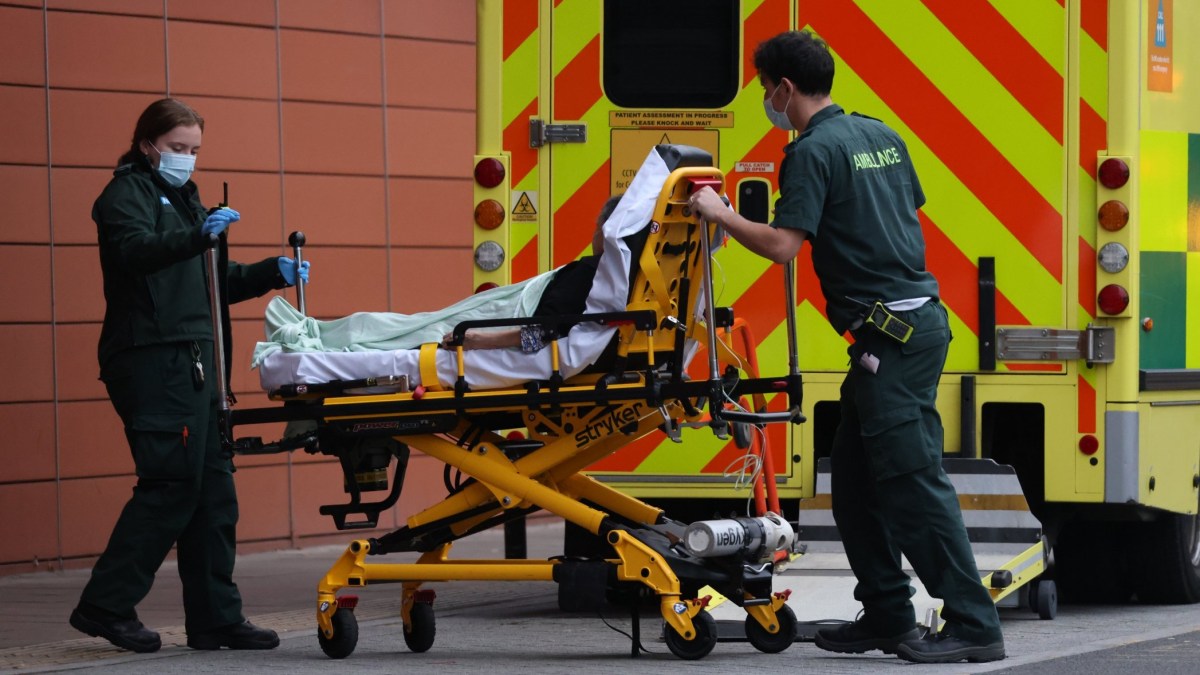Waning immunity and rising case numbers are the main drivers of the increase in hospital admissions, scientists say
Science & Environment Correspondent
The hospital admission rate for people with Covid has hit a 10-month high as our immunity to the virus wanes, new figures show.
Data from the UK Health Security Agency (UKHSA) shows that hospital admissions rose by 8 per cent in the week to Sunday 7 September – meaning they have doubled since the end of June.
Although hospitalisations are well down on the levels seen for most of the pandemic, there are concerns that after months at very low levels cases are now starting to pick up again – and are now almost as high as they were this time last year.
New FeatureIn ShortQuick Stories. Same trusted journalism.
“The increased trend in hospitalisations so early – although still low – is worrying as we enter the autumn months,” Professor Lawrence Young, a virologist at the University of Warwick, told The i Paper.
“It highlights the need to keep an eye on the spread of infection now that children are back in school and people have returned to work after the summer holidays.
“It also emphasises the importance of the autumn booster campaign and the need for more public health messaging to encourage those who are eligible to get their free jabs,” he said.
The hospital admission rate increased from 1.9 people per 100,000 of the population to 2.05 in the week to 7 September – an 8 per cent rise.
That is just over double what it was on 29 June when it was 1.0 per 100,000 but way down on last October’s peak of 4.6 and December 2022’s high of 11.4, according to UKHSA data.
Scientists say the rise in hospitalisations is largely down to a combination of rising cases among the general population (which usually take around two weeks to feed through into hospital admissions) and waning immunity built up from previous infections and vaccines – with most of the population now having gone years without a jab.
This is seen as crucial because the key strength of vaccines is not so much in completely preventing an infection but rather in helping to prevent any infection becoming serious.
Covid cases among the general public are also at around a 10-month high, according to estimates based on UKHSA data – although the latest figures indicate that cases fell by around 3 per cent in the week to 7 September.
Simon Williams, a behavioural scientist and public health expert at Swansea University, told The i Paper: “It remains to be seen whether this increase will translate into a more significant wave of cases and hosptalisations later in the autumn or winter.
“But it is always a concern that as more of the population have less immunity from not being vaccinated or infected recently, then cases can rise.”
“It’s essential that as we enter the flu and covid vaccine season, that those who are eligible get them, including younger adults with immune conditions as well as older adults,” he said.
Dr Williams disagrees with the Government’s decision to offer 12.9 million fewer people an autumn booster for Covid this year.
The Government said that pensioners aged 65 to 74 will no longer be able to go for a free jab.
Meanwhile, 6.9 million people in “clinical risk” groups such as pregnant women and people with chronic heart and liver disease will also be excluded for the first time.
The Government’s decision to offer fewer autumn boosters this year is based on expert advice from the Joint Committee on Vaccination and Immunisation, which continuously monitors and evaluates emerging scientific evidence on Covid vaccines.
Professor Steve Griffin, of Leeds University, said the increase in the number of people with serious cases of Covid going into hospital will fuel cases among patients who were admitted for other reasons.
“As more people are admitted to hospital with Covid, this will increase an already worrying level of ‘healthcare acquired’ infections, which could worsen the condition of existing patients as well as causing NHS staff absences,” he said.
“Whilst the incidence of severe disease is nothing like the pre-vaccine era, we must remember that the harm caused by Covid still shows no sign of stopping its unpredictable behaviour”.

